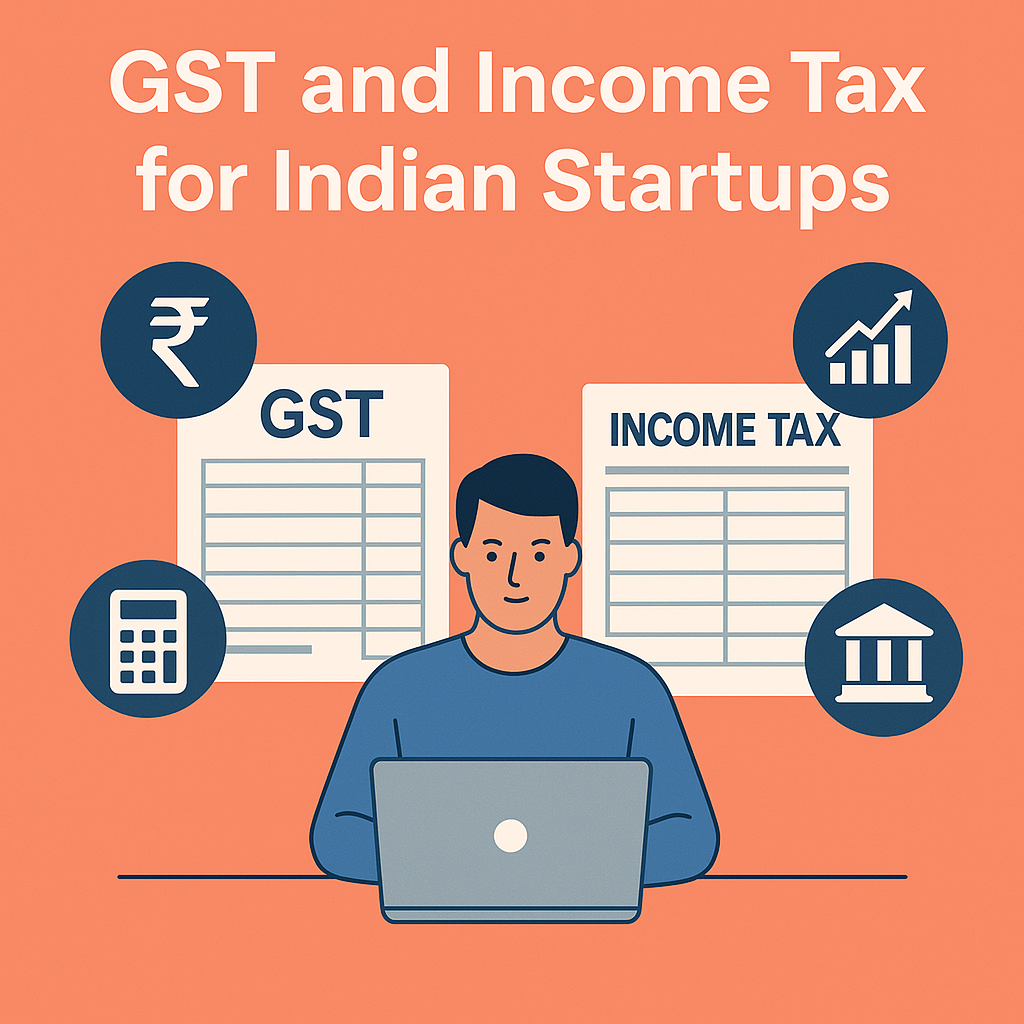
GST and Income Tax for Indian Startups: A Simple Guide to Get It Right
Introduction
Starting up in India is exciting—but navigating the tax system? Not so much. From Goods and Services Tax (GST) to income tax, founders often feel overwhelmed by legal jargon, registration processes, and compliance timelines. Whether you’re running a bootstrapped business or just raised your first round, understanding GST and income tax for Indian startups is essential for staying compliant and saving money.
In this blog, we’ll break down the basics of GST and income tax for Indian startups, including when to register, what to file, and how to avoid common pitfalls.
1. Understanding GST for Indian Startups
What is GST?
Goods and Services Tax (GST) is a unified indirect tax levied on the supply of goods and services across India.
When Does a Startup Need to Register for GST?
You must register if:
-
Your annual turnover exceeds ₹40 lakh (₹20 lakh for service providers)
-
You sell across state borders (interstate supply)
-
You sell online through platforms like Amazon, Flipkart, etc.
Even if you’re under the threshold, voluntary registration can help you claim Input Tax Credit (ITC) and build credibility.
GST Return Filing for Startups
Startups registered under GST must file:
-
GSTR-1 (sales details)
-
GSTR-3B (summary return with tax payment)
Return filing frequency depends on your turnover and compliance category.
2. Income Tax Essentials for Indian Startups
Startup Income Tax Basics
Your startup will be taxed based on its legal structure:
| Entity Type | Tax Rate (FY 2024–25) |
|---|---|
| Proprietorship | As per individual slabs |
| Partnership Firm | 30% + surcharge + cess |
| LLP | 30% flat + cess |
| Private Limited | 22% (new regime) or 15% (for new manufacturing units) |
Tip: Most tech startups opt for Private Limited for investor friendliness and scalability.
ITR Forms for Startups
-
ITR-3/4: Sole proprietors
-
ITR-5: LLPs
-
ITR-6: Private Limited Companies
Due date for filing: 31st July (individuals), 30th September (companies).
3. Tax Benefits for Startups under Startup India
Eligible startups under DPIIT recognition can avail:
-
Section 80-IAC: 100% tax exemption for 3 consecutive years in the first 10 years
-
Angel Tax Exemption for recognized startups receiving funds from Indian investors
To apply, register on the Startup India portal and get DPIIT certification.
4. Important Compliance Deadlines
| Task | Deadline |
|---|---|
| GST Monthly Filing | 11th (GSTR-1), 20th (GSTR-3B) |
| Advance Tax Payment (if due) | 15th June / 15th Sept / 15th Dec / 15th Mar |
| ITR Filing | 31st July / 30th September |
| TDS Payment (if applicable) | 7th of next month |
Need help organizing all this? Check out our Startup Compliance Checklist for 2025.
5. Common Tax Mistakes by Startups (and How to Avoid Them)
-
Skipping GST registration when selling online or interstate
-
Mixing personal and business income/expenses
-
Missing tax audit if turnover crosses limits
-
Solution: Hire a good CA or use startup-focused accounting tools like RazorpayX, Zoho Books, or QuickBooks
